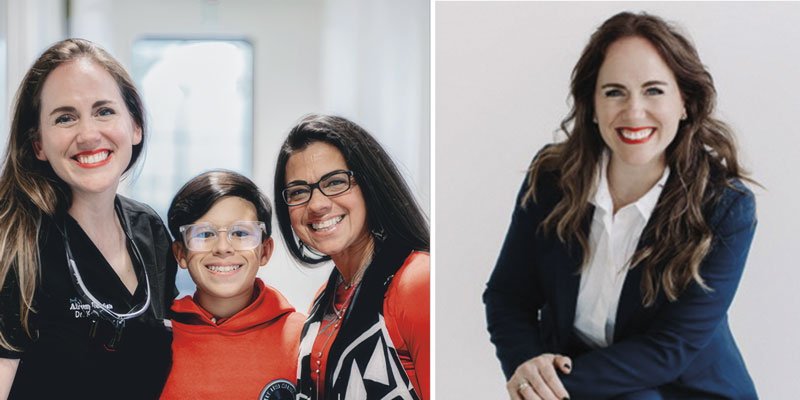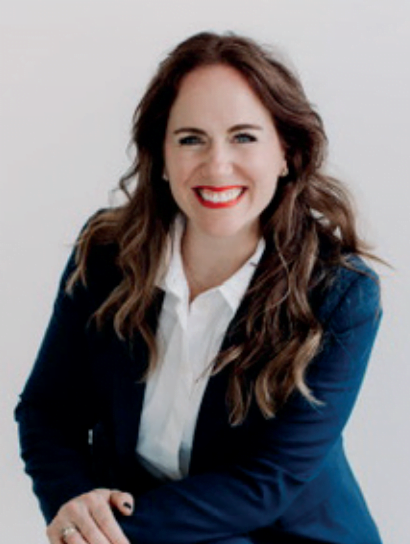Dr. Kalli Hale answers questions that can help you gain confidence in the dental sleep medicine area of your practice.

by Kalli Hale, DDS, MPH, D.ABDSM, D.ABSB
As 2024 comes to an end, I want to highlight the questions I am asked the most about dental sleep medicine and how to make this successful in your practice. While your systems, screening, and patient conversations are foundations of success in dentistry, your mindset is what will ultimately determine the longevity of your sleep practice. More on mindset later. Let me share what so many of you are asking, so together we can literally breathe life back into the patients in your practice.
“While your systems, screening, and patient conversations are foundations of success in dentistry, your mindset is what will ultimately determine the longevity of your sleep practice.”
1. I want to get started in “airway”, but I have no idea where to begin.
I’m not here to promote or tout any company or specific courses. There are many now and it’s overwhelming. But answering this question is obviously important and can only be answered with more questions: What demographic are you wanting to treat? What type of practice do you have? Do you see both kids and adults? Do you want to offer expansion orthodontics in your office, or traditional oral appliance therapy (OAT)? Once we uncover this together, it is much easier for me to guide you and help you avoid the pitfalls of ‘weekend CE’ that overpromises & under delivers. Additionally, having a clear picture of how you see yourself implementing sleep into your clinical practice allows you to incrementally move the needle forward in bite size steps.
2. I have spent thousands on sleep courses and know this is important for my patients, but I never implemented a thing…
I wish this message was not so common in my emails. I spoke with a dentist who was quoted over $200k for an “all-in-one” sleep education/practice management course, paid out monthly over a period of 2 years. I nearly fell over. Now, don’t get me wrong, I’ve got a hefty list of receipts from sleep CE myself, but from many credible sources. A fee that high is an abuse to any dentist and directly affects the profitability of your office; that is to say, there are ways to spend $200k and get great value but diversification of modalities, ideas, diagnostics and administrative systems is what we should expect from something in that price range.
The implementation of these services is another barrier; after spending your money and time learning about how you can save patients’ lives and increase the arsenal of services in your practice, the excitement can wear off when you get to work that Monday to a note that your hygienist wants a raise. Or that your dental assistant is quitting. We get swept back into day-to-day dentistry and can forget to schedule time with our teams to excite them about what we just learned. One of the first things I recommend to doctors interested in taking CE? Invest in your teams too! Bring them to the conferences and make sure to schedule time with them to review what was learned & how to start screening your patients. Don’t forget, this is where you start! Here is where mentorship is critical in my opinion, because once you start screening, that’s when you need to know what to do next. If you have had a ‘failure to launch’ in your practice after training, it means something is missing. Be it a confidence problem on your part, or a leadership issue, it needs to be uncovered so you can make the right steps forward.
3. I really want to treat sleep apnea, but I’m concerned I’ll change the patient’s bite or cause TMD issues!
Good! I’m relieved you’re worried about that because it shows you care. It also identifies the lack of knowledge you have in oral appliance therapy, which is easily remedied by education. A mentor of mine once said, “if the fear of bite changes prevents you from offering this service, I guess the patient can have the prettiest occlusion in the graveyard.” How he humbled me!
What we have to realize is OSA is a chronic, progressive & life-threatening disease. Not fully understanding the gravity of hypoxemia, brain degeneration, hypertension, and general body inflammation will, not surprisingly, make you more concerned about TEETH… and begs the question, if your Mom or Dad stopped breathing 25 times per hour, and their oxygen dropped to 76%, would you care if they developed a slight gap in between #2 & #3?
Mindset here is important, you are no longer ‘just a dentist’, you are a doctor managing a chronic illness for a patient which, like everything in medicine, can have side effects. Do not let your lack of understanding be the reason you are held back from this life saving aspect of dentistry!
4. I would love to do what you do with pediatric sleep disordered breathing and expansion, but I can’t find enough support for these techniques?
Where are you looking? There are great articles coming out in support of dental expansion prior to surgery for tonsils/adenoids, how we can resolve bedwetting issues by improving nasal breathing, how myofunctional therapy and expansion can permanently reduce a patient’s AHI, and the large effect we can have in a patient’s hypertension by treating their OSA. Reach out to me or find someone you trust that offers sleep services in your town. Those of us in the trenches doing this everyday love to talk about it to anyone who will listen!
I would also encourage you to start helping kids immediately. As slowly as literature progresses and as long as studies can take, so many kids are suffering and I refuse to wait until the world catches up. We have plenty of evidence that what we are doing is safe, effective, and life changing for our pediatric patients. Take the courses, learn the techniques, celebrate as what you do changes the trajectory of these kids’ lives. I promise you will never stop.
Lastly, discussing “mindset” as a dentist is critically important. You are not always going to win, and you are going to have days that make you question your abilities. Having a colleague to lean on who has gone before you and been through the trials and troubleshooting of OAT is the difference in how quickly you will gain confidence. You don’t learn as much when it all goes perfectly. You need someone to talk you off the ledge when you reach a limit in your understanding. Refer to my 2nd article in DSP magazine “The First Thing I Got Wrong”. Sleep apnea treatments couldn’t be more different from general dentistry, in both conversation & management. Don’t put unrealistic expectations on yourself and rest assured there is no one more qualified to help patients with this problem than you!
Find out Dr. Kalli Hale’s first step to growing her dental sleep medicine practice in “The First Thing I Changed,” at https://dentalsleeppractice.com/the-first-thing-i-changed/
 Kalli Hale, DDS, MPH, D.ABDSM, D.ABSB, is passionate about how our teeth affect our systemic health – the link between chronic jaw infections, periodontal disease, and subsequent heart problems. Her training in obstructive sleep apnea has transformed both her personal and professional career. Dr. Hale is a Clinical Advocate for VIVOS Therapeutics and works with dentists around the country to develop clinical protocols for the treatment of mild to moderate obstructive sleep apnea and sleep-disordered breathing. Her work in pediatric expansion and sleep-disordered breathing catapulted her speaking career and she lives by the slogan “we have to stop getting it wrong, for our kids.” She is faculty for the Dental Success Network, a key-opinion leader for Candid, and the Chief Dental Officer for Toothpillow. She travels monthly across the U.S. and abroad to teach dentists about Obstructive Sleep Apnea. Learn more about her sleep mentorship program at
Kalli Hale, DDS, MPH, D.ABDSM, D.ABSB, is passionate about how our teeth affect our systemic health – the link between chronic jaw infections, periodontal disease, and subsequent heart problems. Her training in obstructive sleep apnea has transformed both her personal and professional career. Dr. Hale is a Clinical Advocate for VIVOS Therapeutics and works with dentists around the country to develop clinical protocols for the treatment of mild to moderate obstructive sleep apnea and sleep-disordered breathing. Her work in pediatric expansion and sleep-disordered breathing catapulted her speaking career and she lives by the slogan “we have to stop getting it wrong, for our kids.” She is faculty for the Dental Success Network, a key-opinion leader for Candid, and the Chief Dental Officer for Toothpillow. She travels monthly across the U.S. and abroad to teach dentists about Obstructive Sleep Apnea. Learn more about her sleep mentorship program at